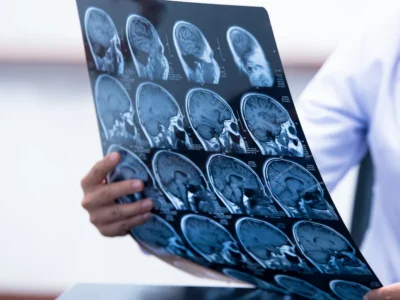Rafael A. Salas Muriel, PhD in psychology, explains in this article how alcohol consumption during pregnancy can affect the fetal brain, increasing the risk of intellectual disability.
Alcohol consumption during pregnancy is one of the most common preventable causes of birth defects and intellectual disability worldwide. Despite medical warnings, many patients with a prior history of alcohol dependence continue to consume alcohol during gestation, which has serious consequences for the fetal brain development and later life.
What is alcohol consumption during pregnancy?
The alcohol consumption during pregnancy refers to the intake of alcoholic beverages by the pregnant woman. Alcohol is a teratogenic substance, which means that it can interfere with the normal development of the fetus, particularly the brain (Waisman and Benabarre, 2021). Even small amounts of alcohol can be dangerous, since the fetus lacks the ability to metabolize it effectively, which increases the concentration of ethanol in its body and in its developing brain.
Fetal alcohol syndrome (FAS)
Fetal alcohol syndrome (FAS) is the most severe outcome of alcohol consumption during pregnancy. It is characterized by a set of physical, cognitive, and behavioral abnormalities that persist throughout the life of the affected individual. Among the most common symptoms are growth retardation, facial malformations, brain damage, and learning difficulties; frequently associated with thiamine deficits (Mateos-Díaz et al., 2022).
Children with FAS often present with moderate to severe intellectual disability, along with behavioral problems and difficulties interacting socially. These symptoms are the direct result of the impact of alcohol on fetal brain development, which is highly vulnerable during the first and second trimesters of gestation (McPhee and Hendershot, 2023).
Fetal alcohol spectrum disorders (FASD)
Not all fetuses exposed to alcohol develop a full FAS picture. Fetal alcohol spectrum disorders (FASD) encompass a broader range of disabilities, including less severe but equally disabling cognitive and behavioral problems. FASD may include developmental delay, memory and attention problems, as well as difficulties solving problems that are not complex.
The diagnosis of FASD can be difficult due to symptom variability, patients’ attempts to hide alcohol consumption during pregnancy, and the lack of obvious physical malformations. However, the consequences for cognitive and emotional functioning are persistent, which significantly affects the quality of life of those affected.
Effects of alcohol on fetal brain development
Alcohol has neurotoxic effects that disrupt the process of neuronal migration and the formation of synaptic connections during brain development. This damage is irreversible and affects various areas of the brain, such as the hippocampus, responsible for memory, and the prefrontal cortex, which regulates decision-making and impulse control (Egervari et al., 2021).
Exposure to alcohol during pregnancy can lead to a reduction in brain size (microcephaly), as well as neurotransmitter dysfunction, which contributes to learning and behavioral problems in the future (Gupta et al., 2016).

Subscribe
to our
Newsletter
Intellectual disability caused by alcohol
One of the most serious consequences of alcohol consumption during pregnancy is intellectual disability in the children. This disability manifests as difficulties in learning, reasoning, problem-solving, and social adaptation (Mattson et al., 2019). The degree of intellectual disability can vary, but in many cases it is severe, limiting the individual’s ability to live independently (Fein and Cardenas, 2015).
Intellectual disability associated with prenatal alcohol exposure is completely preventable if alcohol is avoided during pregnancy. However, the consequences once the damage has occurred are permanent and require lifelong supportive interventions for the affected person, such as an appropriate neuropsychological diagnosis and an intervention as personalized as possible to the deficits detected.
Risks of drinking alcohol during pregnancy
Alcohol consumption during pregnancy not only increases the risk of FAS and FASD, but it also increases the likelihood of spontaneous abortions, preterm births, and low birth weight. Complications are not limited to neurological development, but can also affect physical development and the baby’s overall health. Cases of delirium tremens have even been described (Rahman and Paul, 2023).
Despite the overwhelming evidence about the risks of alcohol in pregnancy, myths persist about the safety of drinking small amounts of alcohol. However, the medical recommendation is clear: there is no safe amount of alcohol that can be consumed during pregnancy.
How alcohol consumption affects the baby’s brain development
The fetal brain development is a complex and continuous process that begins in the first weeks of gestation. During this time, the fetal brain goes through critical stages of growth and cellular differentiation. Alcohol consumption at any time during pregnancy can interrupt this process, causing damage that ranges from mild learning difficulties to severe cognitive and physical impairments (Cohen et al., 2022).
Alcohol exposure mainly affects developing nerve cells, reducing their number and altering their organization (Bischoff-Grethe et al., 2024). As we have seen throughout this article, this can lead to delays in motor development, behavioral problems, and low intellectual capacity in the future.
The need for prevention of alcohol consumption during pregnancy
The need for psychological and psychiatric treatment in women who consume alcohol during pregnancy is crucial to prevent the serious effects we have seen this substance can cause in fetal development.
Total abstinence from alcohol is the only effective measure to prevent fetal alcohol syndrome (FAS) and other fetal alcohol spectrum disorders (FASD), which cause intellectual disability and various physical and cognitive complications.
Due to the highly addictive nature of alcohol, many pregnant women may find it difficult to stop consuming on their own, so professional support is essential. Treatment should be comprehensive, combining psychotherapy with psychiatric interventions that help manage triggers for drinking and maintain abstinence.
In this regard, cognitive-behavioral therapy (CBT) and cognitive rehabilitation have been shown to be effective in modifying thought and behavior patterns related to alcoholism. These approaches enable patients to identify the underlying causes of their consumption and develop strategies to avoid relapses.
In turn, psychiatric intervention may include the use of medications that reduce cravings or stabilize the patient’s mood, thus facilitating her ability to stay away from alcohol. The combination of these treatments not only protects the fetus from the devastating effects of alcohol, but also promotes sustained recovery for the mother, improving her physical and mental health.
Bibliography
- Bischoff-Grethe, A., Stoner, S. A., Riley, E. P., & Moore, E. M. (2024). Subcortical volume in middle-aged adults with fetal alcohol spectrum disorders. Brain communications, 6(5), fcae273. https://doi.org/10.1093/braincomms/fcae273
- Courtney, K. E., Li, I., & Tapert, S. F. (2019). The effect of alcohol use on neuroimaging correlates of cognitive and emotional processing in human adolescence. Neuropsychology, 33(6), 781–794. https://doi.org/10.1037/neu0000555
- Cohen, S. M., Alexander, R. S., & Holt, S. R. (2022). The Spectrum of Alcohol Use: Epidemiology, Diagnosis, and Treatment. The Medical clinics of North America, 106(1), 43–60. https://doi.org/10.1016/j.mcna.2021.08.003
- Egervari, G., Siciliano, C. A., Whiteley, E. L., & Ron, D. (2021). Alcohol and the brain: from genes to circuits. Trends in neurosciences, 44(12), 1004–1015. https://doi.org/10.1016/j.tins.2021.09.006
- Fein, G., & Cardenas, V. A. (2015). Neuroplasticity in Human Alcoholism: Studies of Extended Abstinence with Potential Treatment Implications. Alcohol research: current reviews, 37(1), 125–141.
- Gupta, K. K., Gupta, V. K., & Shirasaka, T. (2016). An Update on Fetal Alcohol Syndrome-Pathogenesis, Risks, and Treatment. Alcoholism, clinical and experimental research, 40(8), 1594–1602. https://doi.org/10.1111/acer.13135
- Mateos-Díaz, A. M., Marcos, M., and Chamorro, A. J. (2022). Wernicke-Korsakoff syndrome and other diseases associated with thyamine deficiency. Wernicke-Korsakoff syndrome and other pathologies associated with thiamine deficiency. Medicina clinica, 158(9), 431–436. https://doi.org/10.1016/j.medcli.2021.11.015
- Mattson, S. N., Bernes, G. A., & Doyle, L. R. (2019). Fetal Alcohol Spectrum Disorders: A Review of the Neurobehavioral Deficits Associated With Prenatal Alcohol Exposure. Alcoholism, clinical and experimental research, 43(6), 1046–1062. https://doi.org/10.1111/acer.14040
- Rahman, A., & Paul, M. (2023). Delirium Tremens. In StatPearls. StatPearls Publishing.
- Waisman, M., and Benabarre, A. (2021). Adicciones: Uso de sustancias psicoactivas y presentaciones clínicas de la enfermedad adictiva. Editorial Médica Panamericana.
If you liked this blog post about alcohol consumption during pregnancy: effects on the fetal brain and risk of intellectual disability, you will surely be interested in these NeuronUP articles:
“This article has been translated. Link to the original article in Spanish:”
Consumo de alcohol durante el embarazo: efectos en el cerebro fetal y riesgo de discapacidad intelectual







 Deep Learning Model for Early Detection of Cognitive Impairment from Clinical Notes in Electronic Health Records
Deep Learning Model for Early Detection of Cognitive Impairment from Clinical Notes in Electronic Health Records
Leave a Reply